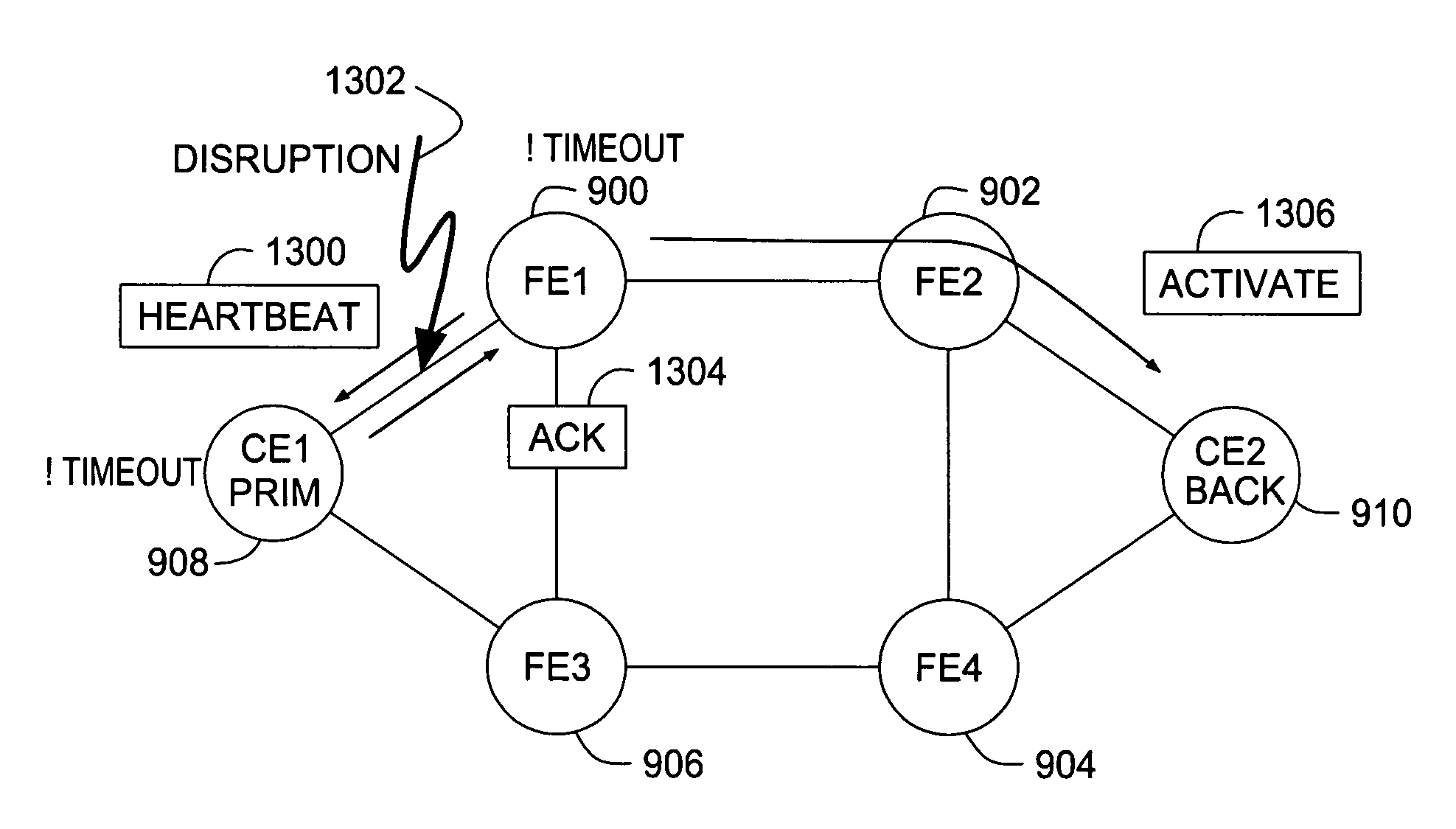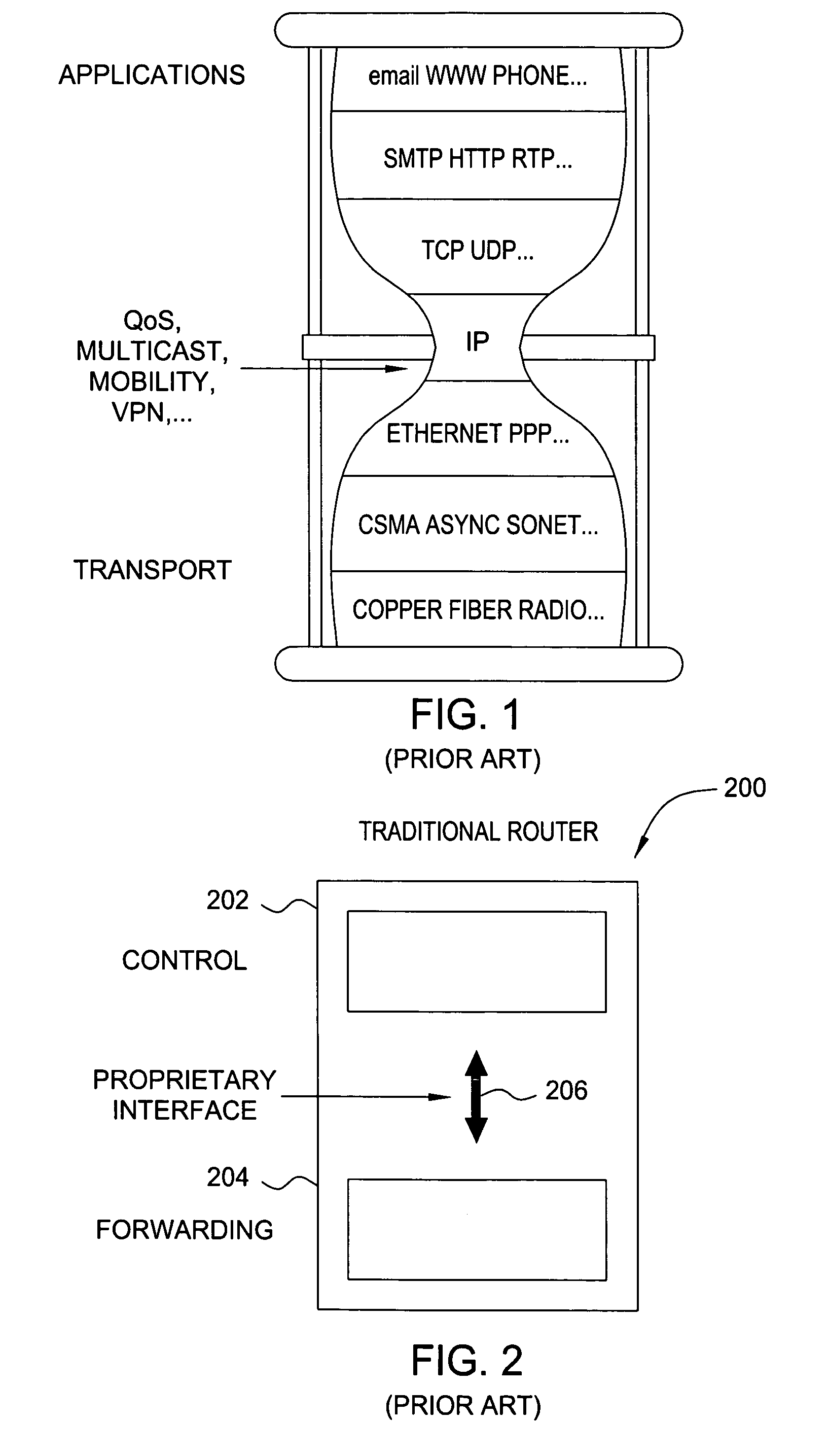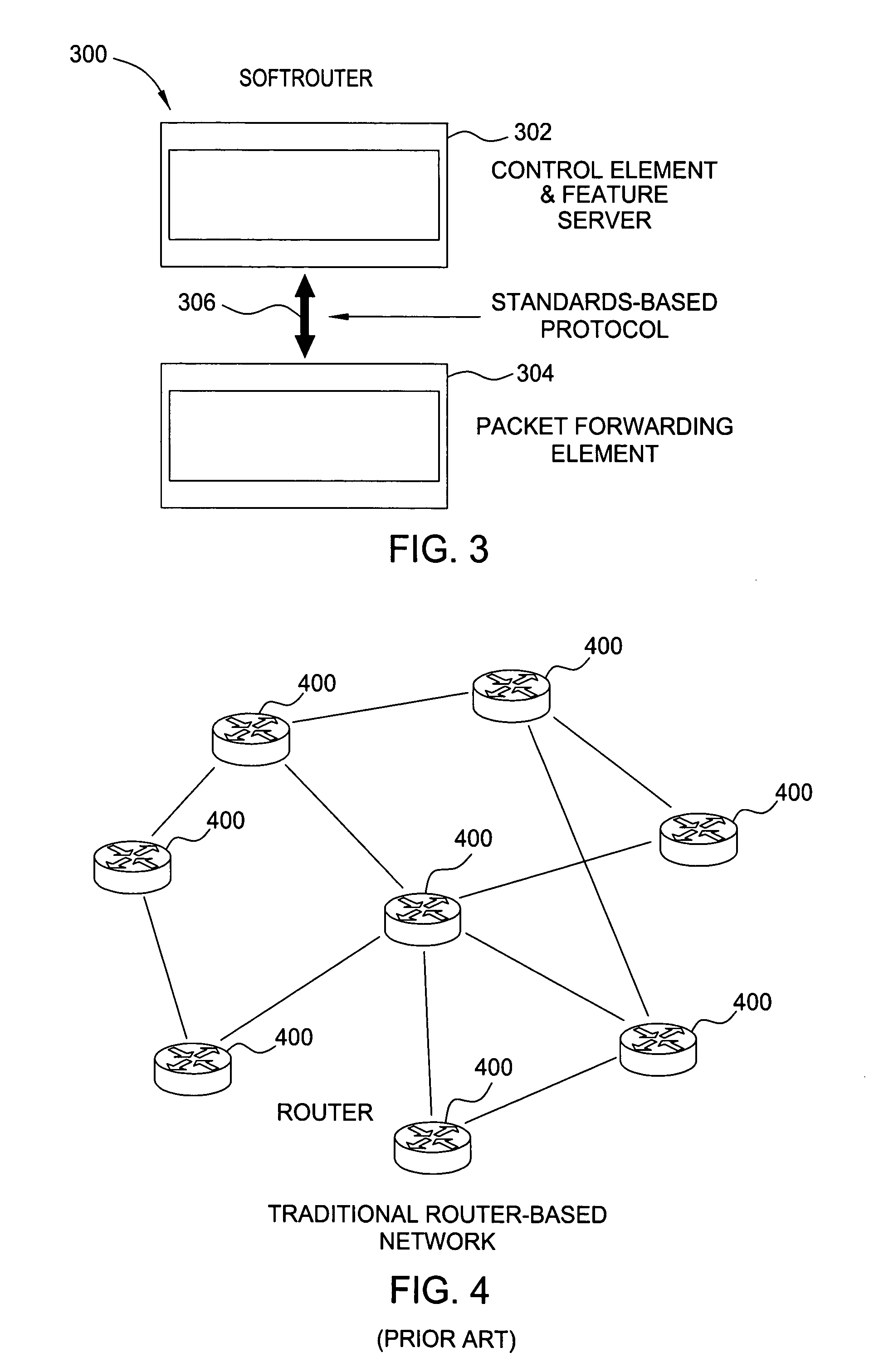Softrouter dynamic binding protocol
a dynamic binding and softrouter technology, applied in the field of networkwork, can solve the problems of shared failure, difficult and cumbersome to achieve in a network of autonomous and complex routers, and increasing complexity of traditional router architectures
- Summary
- Abstract
- Description
- Claims
- Application Information
AI Technical Summary
Benefits of technology
Problems solved by technology
Method used
Image
Examples
Embodiment Construction
[0044]The invention will be primarily described within the general context of an embodiment of an exemplary SoftRouter architecture, however, those skilled in the art and informed by the teachings herein will realize that the disaggregation concept may be used to generate various other embodiments of network architectures and that the invention is applicable to local area networks (LANs), metropolitan area networks (MANs), wide area networks (WANs), and other networks, many open systems interconnection (OSI) layers, gateway protocols, serial line protocols, protocol stack routing and bridging protocols, many other protocols, traffic management, optical, edge / core routing, wireless, cable, data centers, auxiliary signal path (ASP), fault management, configuration management, accounting management, performance management, security management, other network management, enterprise, government, military applications, and many other different kinds of networking characteristics and applic...
PUM
 Login to View More
Login to View More Abstract
Description
Claims
Application Information
 Login to View More
Login to View More - R&D
- Intellectual Property
- Life Sciences
- Materials
- Tech Scout
- Unparalleled Data Quality
- Higher Quality Content
- 60% Fewer Hallucinations
Browse by: Latest US Patents, China's latest patents, Technical Efficacy Thesaurus, Application Domain, Technology Topic, Popular Technical Reports.
© 2025 PatSnap. All rights reserved.Legal|Privacy policy|Modern Slavery Act Transparency Statement|Sitemap|About US| Contact US: help@patsnap.com



